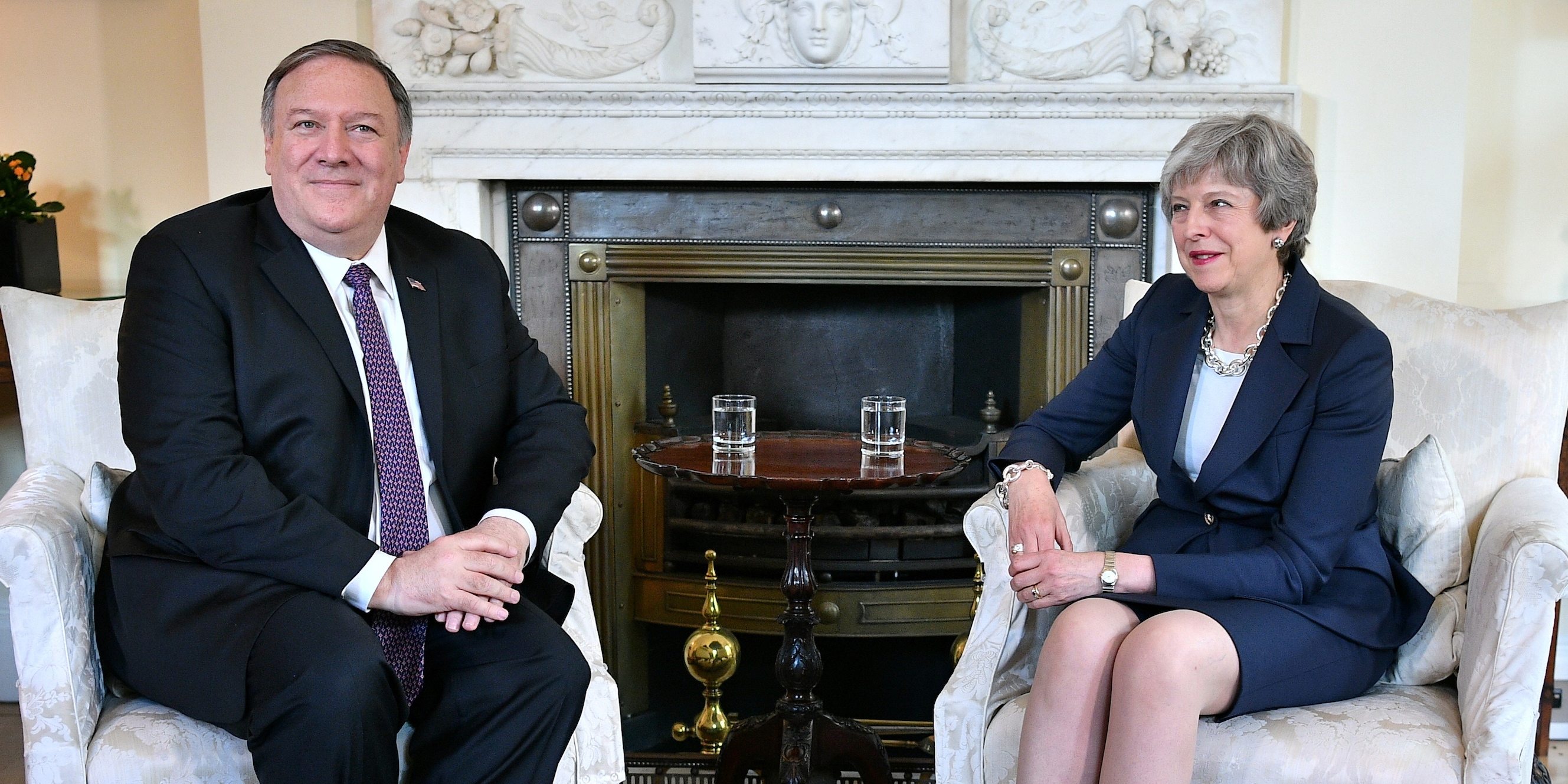- Iran’s Revolutionary Guard seized two British oil tankers in the Strait of Hormuz on Friday in retaliation over the Royal Navy’s seizing an Iranian tanker off Gibraltar earlier this month.
- Some British MPs criticized their government’s response to mounting Iranian tensions in the Strait of Hormuz, saying that it should have foreseen Iranian aggression after the Gibraltar incident.
- US Secretary of State Mike Pompeo appeared to side with them, calling on Britain in a Monday morning “Fox & Friends” interview to take responsibility of their own boats.
- Visit Business Insider’s homepage for more stories.
US Secretary of State Mike Pompeo has called on the UK to bear responsibility for their own ships in the Strait of Hormuz, as British lawmakers accuse the government of having “dropped the ball” by failing to protect its tankers amid mounting tensions with Iran.
Iran’s paramilitary Revolutionary Guard Corps seized two UK-linked oil tankers in the Strait of Hormuz last Friday. They seized the British-flagged Stena Impero, and briefly detained another ship, the Mescar, which is operated by a British company.
Tehran’s act of aggression came in retaliation for the UK seizure of an Iranian oil tanker off the British territory of Gibraltar on July 4. The Grace 1 was suspected of carrying Iranian oil to Syria in breach of EU sanctions.
Pompeo told “Fox & Friends” on Monday morning: “The responsibility … falls to the United Kingdom to take care of their ships.”

Multiple British MPs on Sunday accused the government of failing to guard its maritime interests in the Gulf, saying it should have foreseen Iranian aggression to British interests after the Gibraltar incident.
The Strait of Hormuz is a vital shipping lane for global oil. Some 21 million barrels of oil pass through the narrow waterway every day. That's about one-third of the world's sea-traded oil.
Last month, US President Donald Trump called on China, Japan, and other countries to protect their own interests in the strait.
"Why are we protecting the shipping lanes for other countries (many years) for zero compensation," he tweeted. "All of these countries should be protecting their own ships on what has always been a dangerous journey."

'We have dropped the ball here'
Conservative MP Huw Merriman told the BBC's Westminster Hour on Sunday: "I take the view that we have dropped the ball here."
"We knew from July 4, having seized an Iranian tanker that we suspected was breaching EU sanctions and heading for oil to Syria, that there would be some form of reprisal and that's exactly what we've got," Merriman said.
"It was hardly a surprise when one of ours got taken."
Two weeks ago the Revolutionary Guard tried to intimidate a British oil tanker belonging to BP into entering Iranian waters. But a British warship escorting the tanker aimed weapons at the Guards, issued "verbal warnings," and the Iranians retreated.

Iain Duncan Smith, the former leader of the Conservative Party, told the BBC's Andrew Marr Show: "I think there are genuine questions to be raised right now about the British Government's behavior. I say this as a supporter of the Government."
Duncan Smith added that Washington had offered "US assets" to support British oil tankers in the region, but that London did not accept them.
"If something didn't send an alarm signal that we needed to have serious assets or protection and convoying of our vessels in that area then I want to know why not," he said.
Duncan Smith is the chairman of Boris Johnson's campaign to succeed Theresa May as prime minister. Johnson is widely expected to win.

But speaking to Sky News's Sophy Ridge, Defence Minister Tobias Ellwood, denied that the UK had taken its "eye off the ball" in the region, saying that it would "impossible" for the Royal Navy "to escort each vessel" passing through the Strait of Hormuz given the sudden increase of hostilities with Iran.
He did, however, call on the next prime minister to invest more into the Royal Navy if it wanted to "continue playing a role on the international stage."
Britain currently has one warship - HMS Montrose - patrolling the strait, which will soon be replaced by HMS Duncan as the Montrose undergoes scheduled maintenance.
The US has recently been trying to get allies' support to help it step up surveillance of shipping lanes on the strait to stop Iran from attacking commercial vessels, Reuters reported, citing unnamed sources.
The UK Ministry of Defense is deploying an additional frigate - HMS Kent - and a support ship to the region, though the ministry said it was not related to increasing tensions with Iran.

